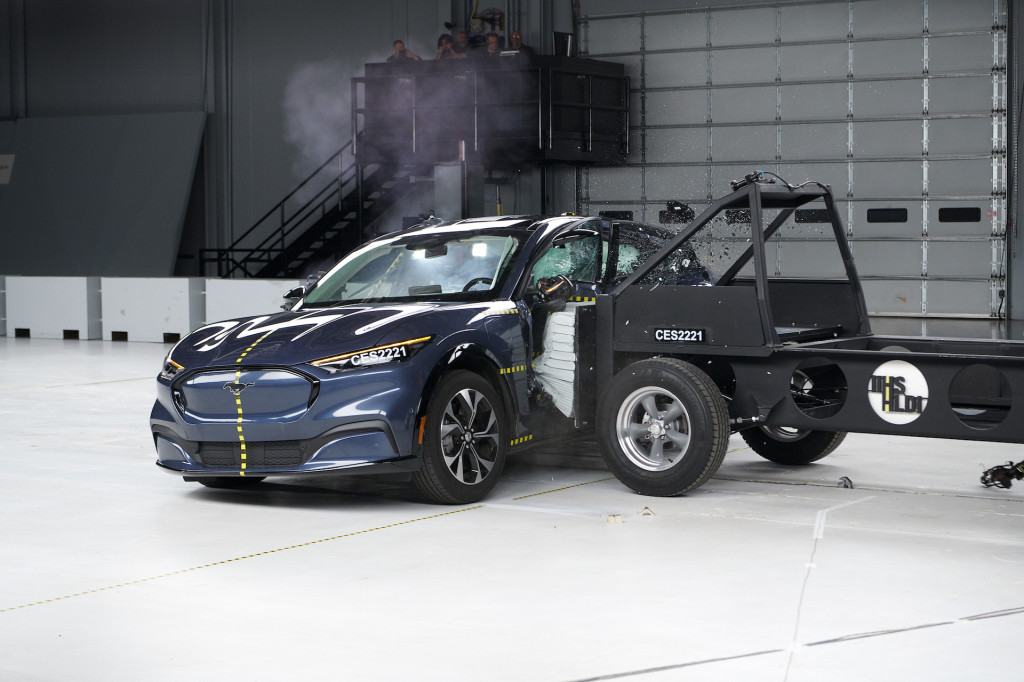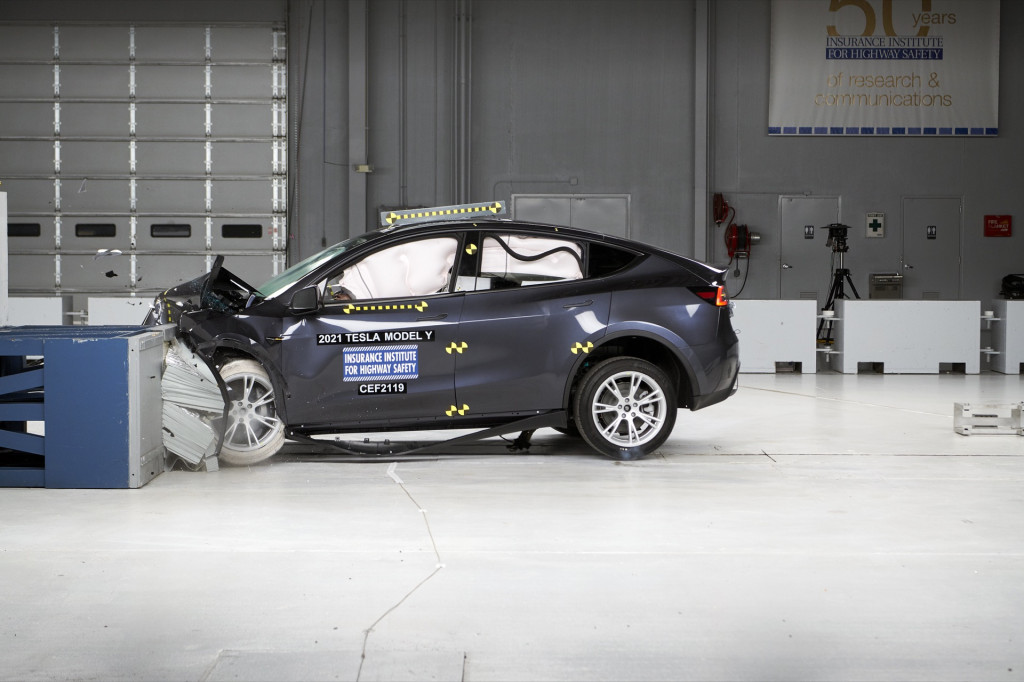It's more expensive to repair an EV—especially a Tesla—after a collision, but also more likely that the car can still be driven while waiting for repairs, according to a new auto damage study from a company that provides tech for the auto insurance and collision repair industries.
That firm, Mitchell International, sifted through second-quarter 2023 industry data, finding that average repair costs for EVs were $963 higher in the U.S. and $1,328 higher in Canada than for comparable internal-combustion vehicles.
The news was particularly bad for Tesla owners. Average collision-repair costs for Teslas was $1,589 higher in the U.S. and $1,600 higher in Canada, according to the study. Tesla has tried to address high repair costs by expanding its insurance offerings (Tesla insurance is available in 12 states) and opening in-house body shops and repair facilities.

2022 Ford Mustang Mach-E, IIHS
One factor in this was a lower percentage of parts being repaired instead of replaced in EVs, at 13.49%, compared to 19.20% for internal-combustion vehicles. Those parts were also more likely to come from the original equipment manufacturer (OEM), potentially affecting cost. EV repairs studied averaged 90.75% OEM parts compared to 66.50% OEM parts for internal-combustion cars.
EVs also averaged more time in the paint shop than internal-combustion cars, at 8.51 hours and 8.02 hours, respectively. Labor hours for paint refinishing can be 40% of the total labor time for the average collision repair, Mitchell International noted, and those hours in turn represent a large chunk of the final bill.
On the bright side, the same analysis found that EVs were less likely to be designated non-drivable than internal-combustion cars. In Q2 2023, 10.31% of EVs involved in collisions were designated non-drivable, compared to 13.11% of internal-combustion vehicles. Analysts credit EVs' lack of moving parts, saying this means the powertrain is less likely to be damaged in a crash.

2021 Tesla Model Y IIHS crash-testing
Dented fenders and busted bumpers may be the kinds of damage drivers are most likely to encounter, but battery repairs may prove to be the most expensive for EV owners—and the greatest difference from internal-combustion vehicle repair. Reuters reported earlier this year that, with battery packs representing up to 50% of an EV's price tag, significant damage to a pack might make a vehicle uneconomical to repair.
Repairing both new EVs and internal-combustion vehicles also increasingly requires access to manufacturers' proprietary software. Right to repair rules, which guarantee access to this software and any other necessary tools, will be crucial to allowing independent shops to repair vehicles in the future, regardless of the powertrain.












